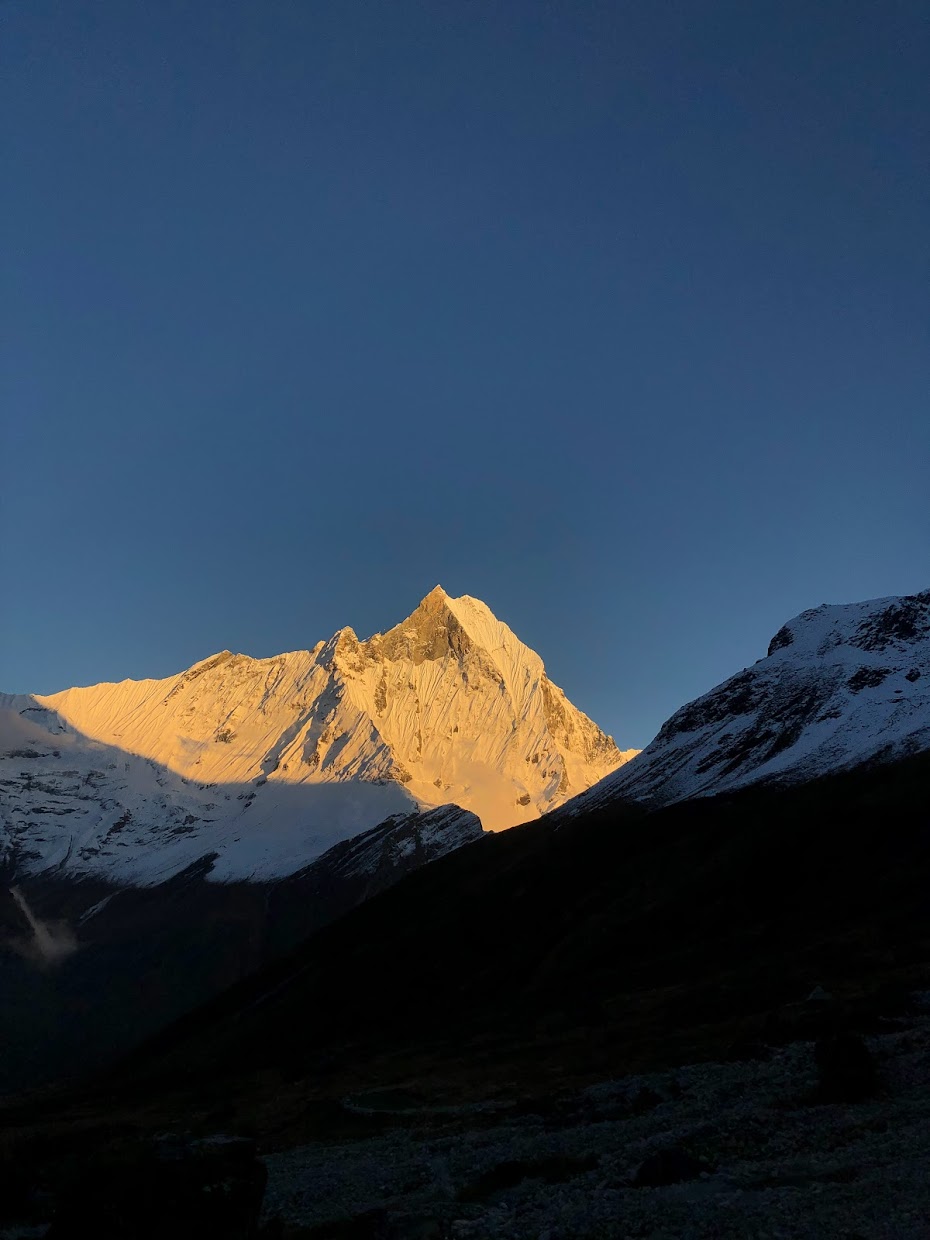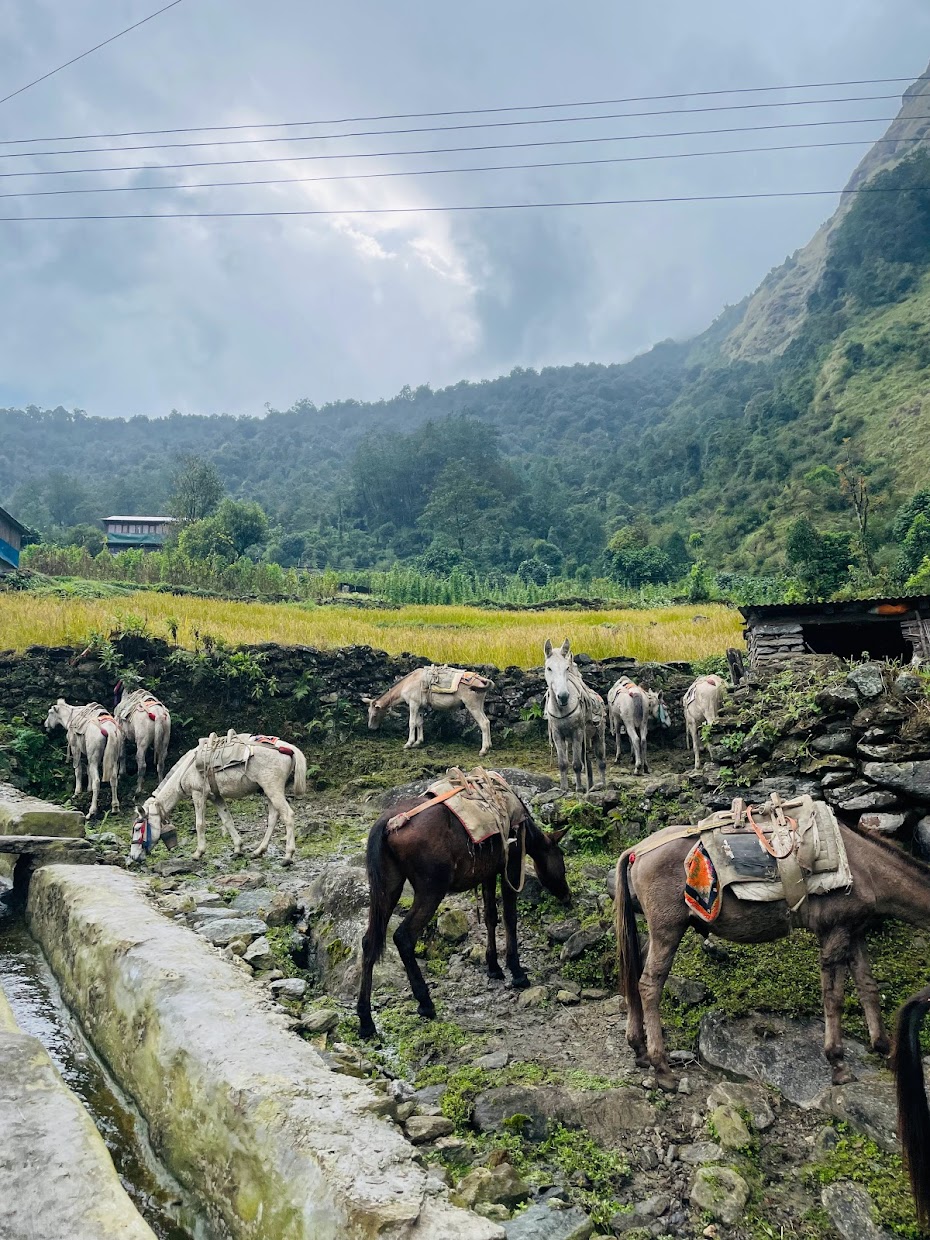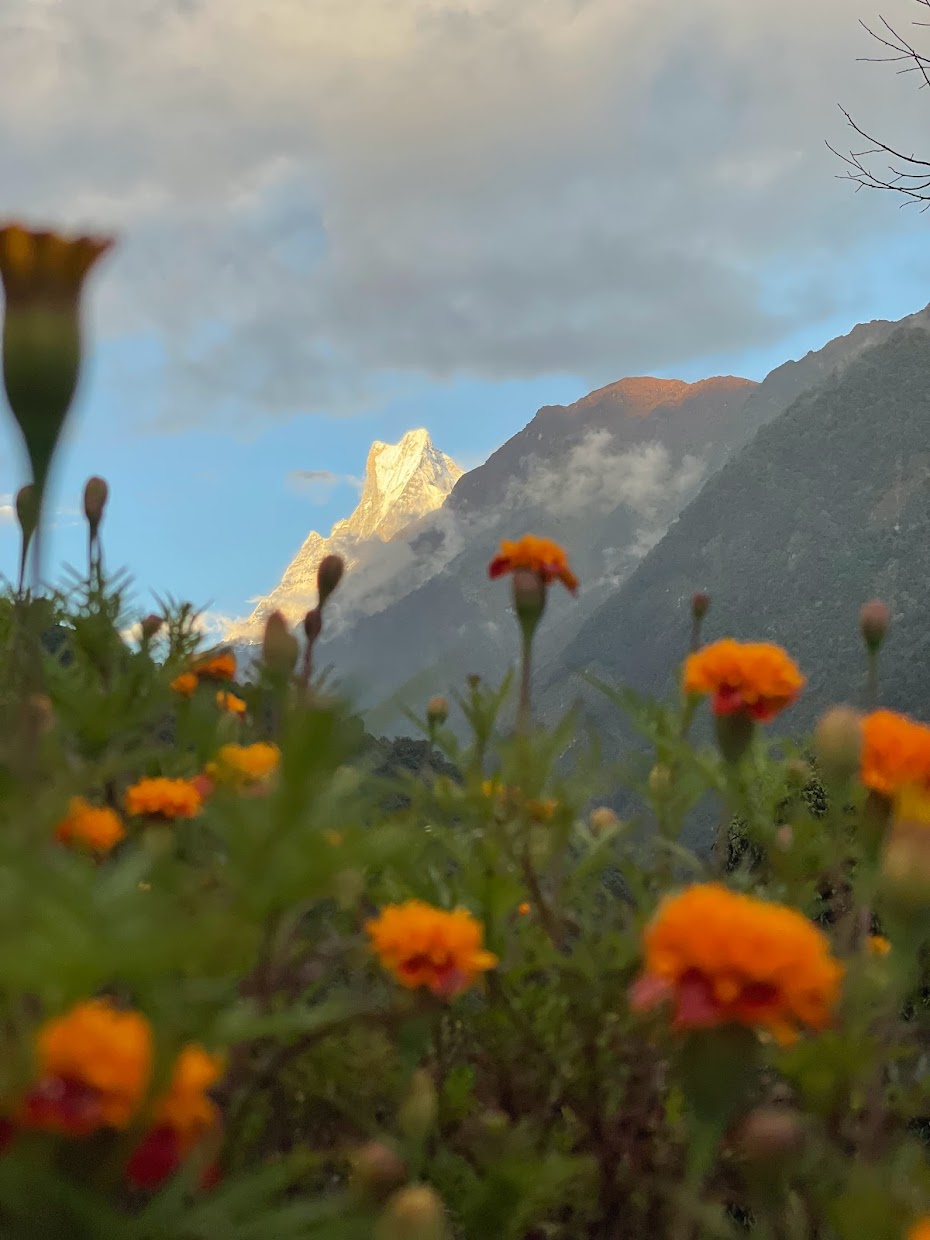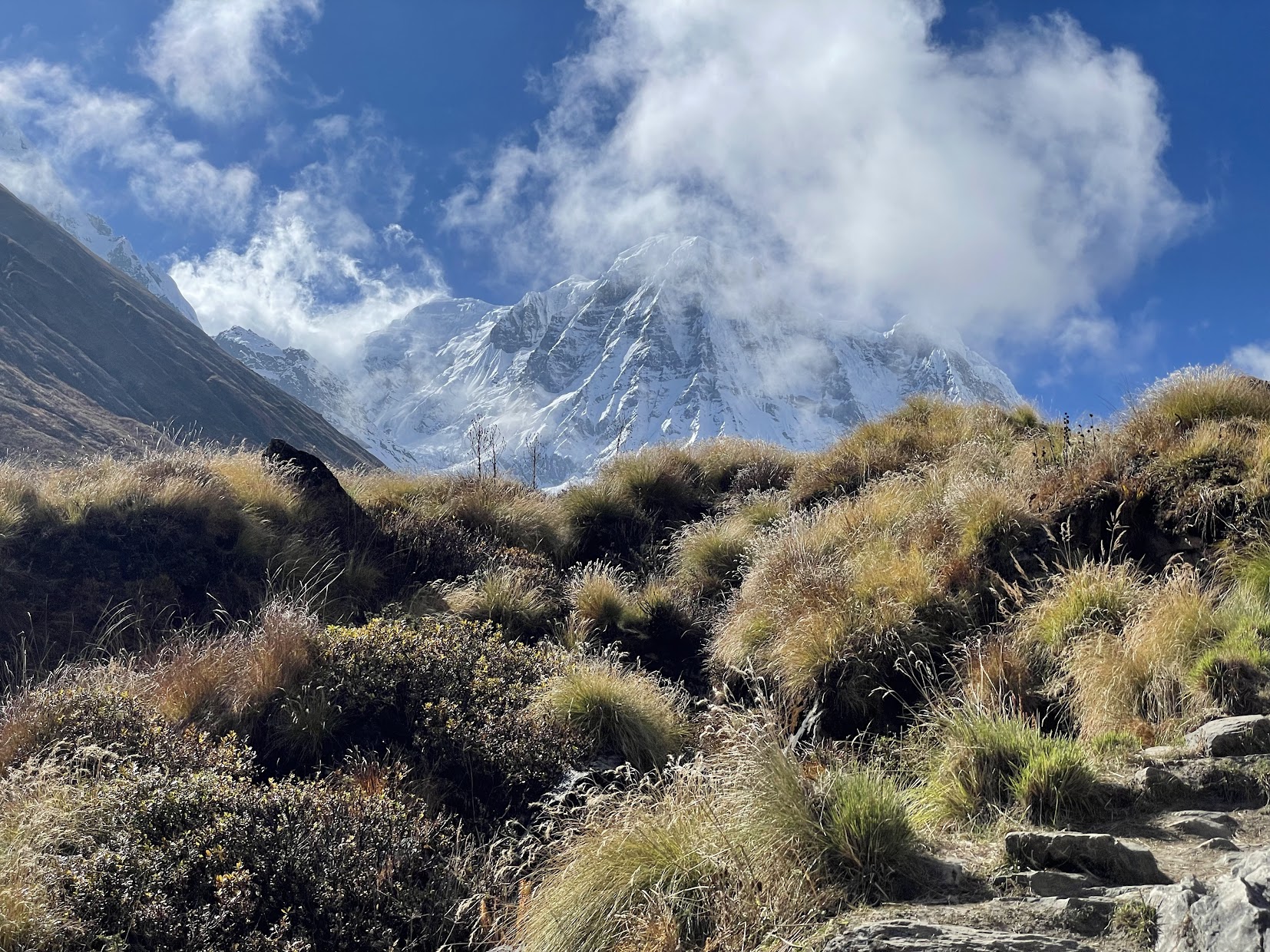I am from Pokhara, an alluring city in Nepal well-known for its impeccable green beauty and unique landscapes. Mostly, my morning starts with an invigorating walk in nature and mesmerizing views of mountains, whereas my evening is filled with cycling in the hills and easing off alongshore, savoring the sun casting long shadows on the lake. Whether I am worn out or worry-free, I often find myself relishing being near different lakes, as it is home to seven lakes. My friends from other places generally envied the nighttime cityscape. Much as I enjoy the lively nightlife on the streets of Lakeside, I equally prefer going sightseeing around the valley, which is usually just a 20–30 minute ride from my home.

One night, I took my grandpa to one of the viewpoints of the city on the hill. I parked the scooter, and we rested on the bench. I love to behold the scene that night offers. As darkness deepened, the city lights grew more intense, creating a breathtaking spectacle that captured the essence of urban vitality. While I adored bright city lights, my grandpa beside me smiled in reminiscence. With a mosaic of pauses and whispers, he recalled fragments of memories. He used to walk to the same place with his friends for almost two hours after exhausting work in the fields and lie down on the ground, where stargazing felt like finding solace in the boundless beauty. He said, "The freshness of the air, moisture of the soil, and timeless dance of the stars amazed us, and fatigue fell behind." Adding on that, I told him how much astronomy fascinates me with the presence of the myriad of constellations, the solar system, shimmering stars, and many more things. He was astonished by the knowledge I had at my age. I even showed him videos of the space via the internet—typical Gen Z behavior. The whole universe stored on the phone amazed him. In this day and age, impossibly distant creatures have become intimately close through the internet. As per recent data, there are 5.18 billion internet users worldwide, which amounts to 64.6% of the global population. My grandpa raised an eyebrow at the unimagined changes happening around the world and sighed. After some comfortable silence, where we deemed our enjoyment distinct, we returned home.
As a Pokhreli (someone whose hometown is Pokhara), can you even live without planning a trek? Simply, no. Pokhara is the gateway to plenty of mountain treks, and a backpack is a must. In October, when nature captivates hearts and minds with its rich colors and crisp air, my friends and I left to embark on a journey via the glorious trials of Annapurna Base Camp. For five days, we stepped up and down, with every turn unfolding exquisite vistas that seemed straight out of a painting. There was warmth amid the growing leaves and flowing rivers in the frigid weather. Tears welled up in my eyes when they met the ring of mountains changing colors in the evening. 'My goddess, What a beauty!' is something that I uttered at each step. The local foods prepared by hospitable Gurung people ignited our chicken legs and immobile bodies, whereas the dedication of the porter inspired us to keep up the spirit. Though I gained enriching experiences, it was not completely easy.

The obligation to wake up early to catch the view in the freezing winter made me yearn for the mild temperature of Pokhara. Walking for six-seven hours per day on uneven and steep terrain carrying an overpacked bag, I missed my scooter and its storage often. Sleeping on the tables of the dining hall owing to seasonality and limited rooms with a single layer of blanket in the mountain region was an antsy adventure. Nevertheless, as we climbed to higher altitudes, we were lost in the pristine night sky views, and all the hardship felt worthwhile. The awe-inspiring landscapes of mountains and the vastness of the cosmos reduced our mental and physical fatigue. After a wearisome walk all day, stargazing soothes the aches unimaginably. At that time, I couldn't help recalling my grandpa's words. I was living his regular life for a few days. I was fulfilled.
When I returned home with rosy cheeks and nose after the trek, I contemplated the makeover we have done of nature. As usual, I left for the light at night on the hillside. I remembered the unfavorable impact of a load-shedding era on our regular lives before a decade. There were days when my parents used to check our daily routine to decide whether to cook rice in a rice cooker or a pressure cooker and I had to finish homework before sunset. In comparison, 24/7 facilities of lights have made our life much easier. As someone whose childhood passed in darkness, the brightness of bulbs bewitched me. But while finding joy in artificial lights, starry skies are pushed beyond our sight. In urban areas, where over 80% of the world's population lives, there is maximum interference from artificial lights invading night skies. Technological advancement has not only contributed to air, land and water pollution but elevated light pollution. It hinders stargazing as well as affects human health causing sleep disturbance, obesity, diabetes and certain cancers. Also, it impacts animals' and plants' circadian rhythms as they depend on the day-and-night cycle of light and darkness for their survival.

With time, we hit triumph in various aspects ensuring the quality of life, but we failed to entwine the gifts of mother earth. As much as we need light, it's crucial to ensure lights are not affecting the brightness of the sky by reducing the unnecessary use of bulbs in homes and streets. As I behold the city from far, I think about how pleasurable it would be if we could gather for 'Earth hour' when all electrical appliance power will be turned off, saving electricity and energy too, and we could get lost in awe. Wrapping my feelings, I reach home and switch off the doorway light that often remains on and lie on my bed.
Now, as I carry my grandpa's memories and have time to create mine, I wonder about the stories of the coming generations. Will my children stargaze sitting on the bench from the hillside or travel to hunt in remote areas which perhaps will be scarce in view of rapid urbanization and industrialization unaccompanied by sustainability? Anyway, they will have their own tale to tell.

